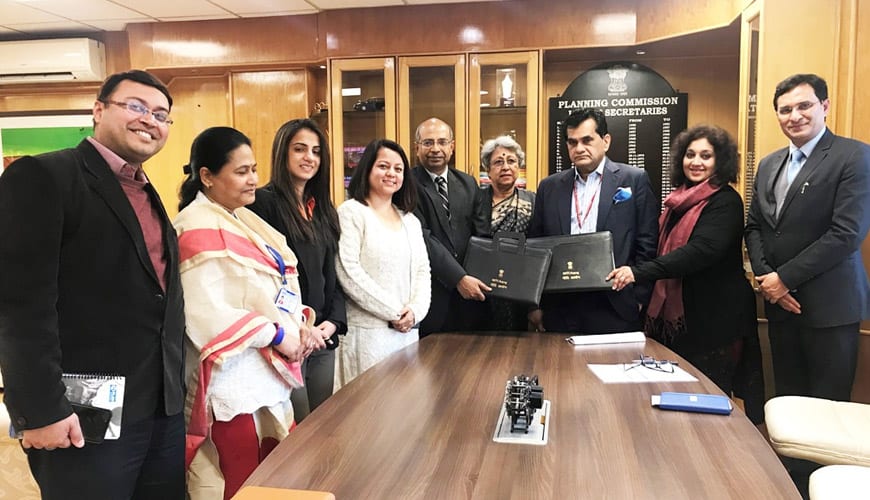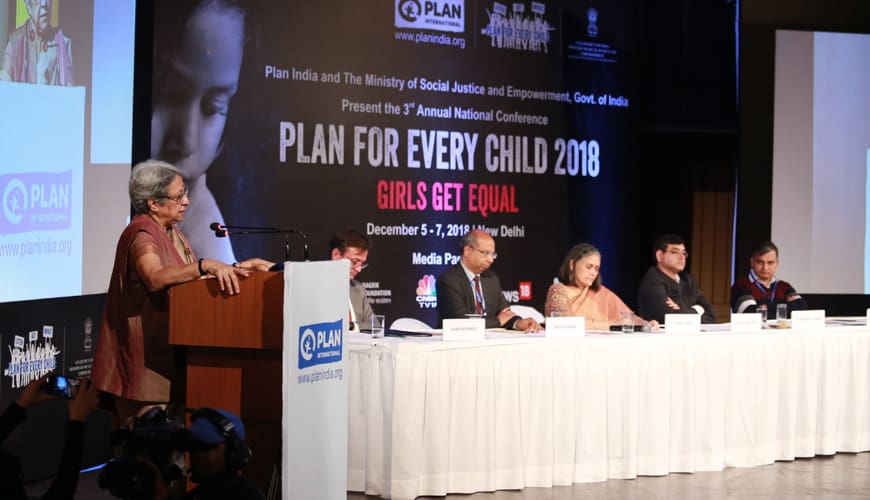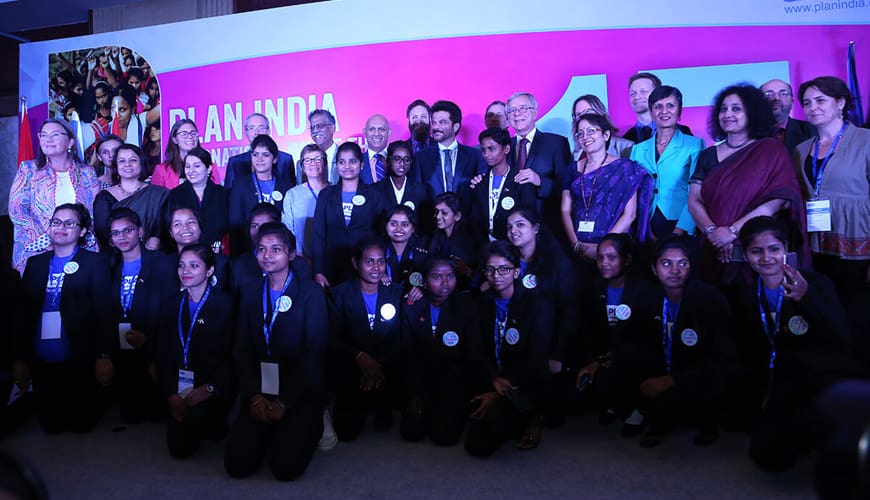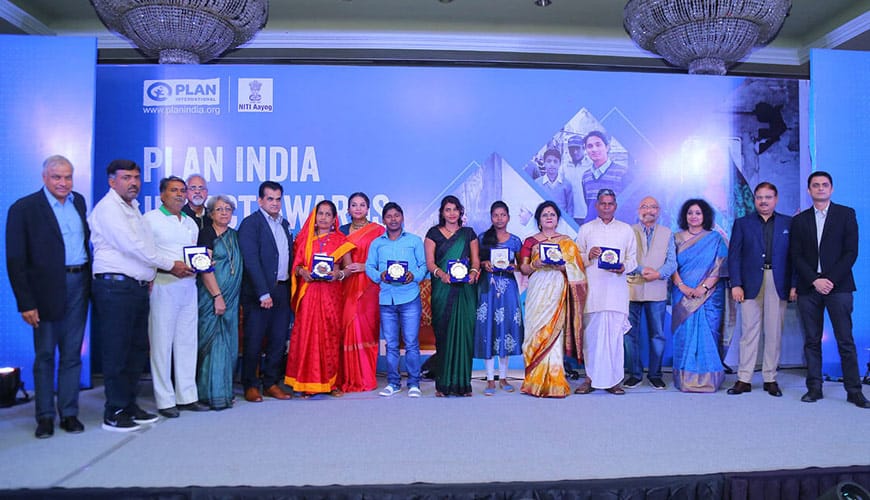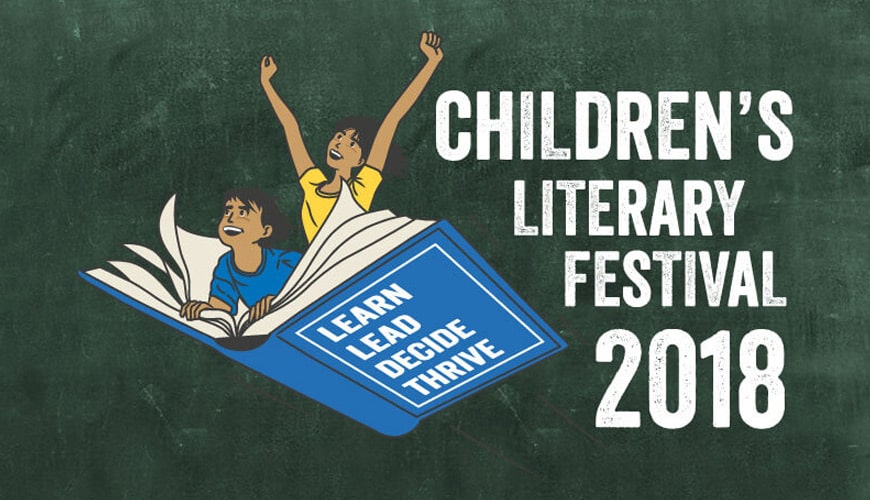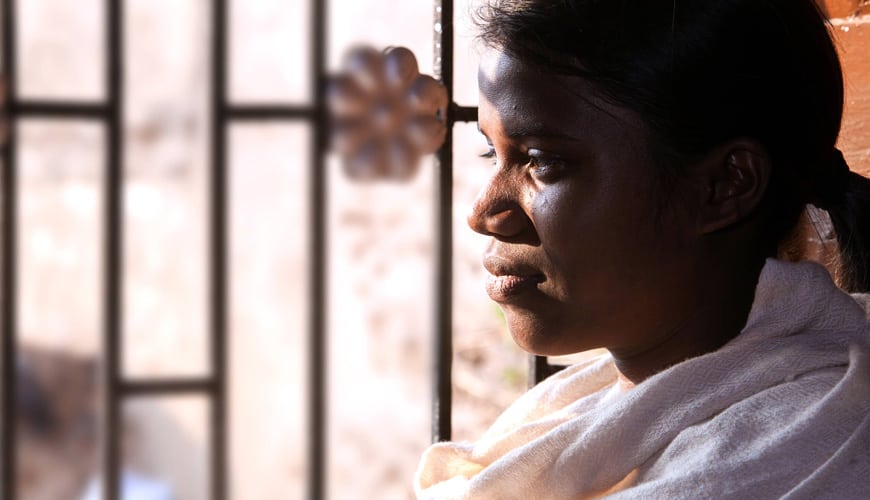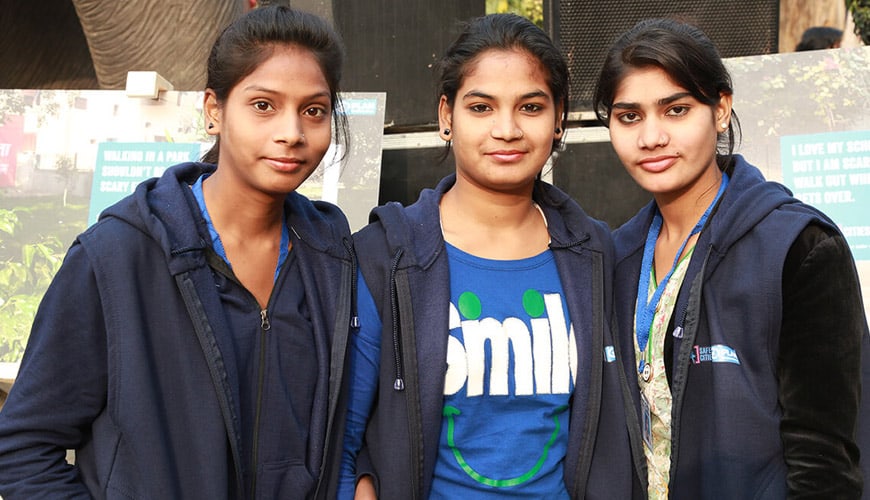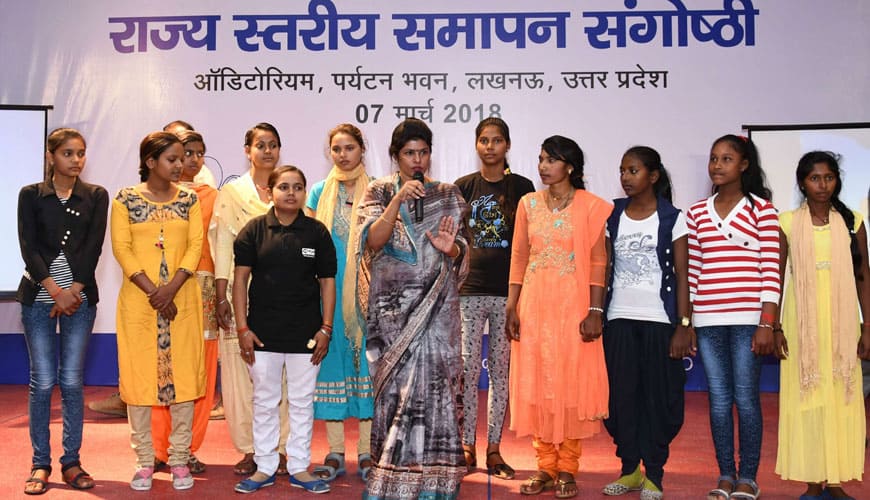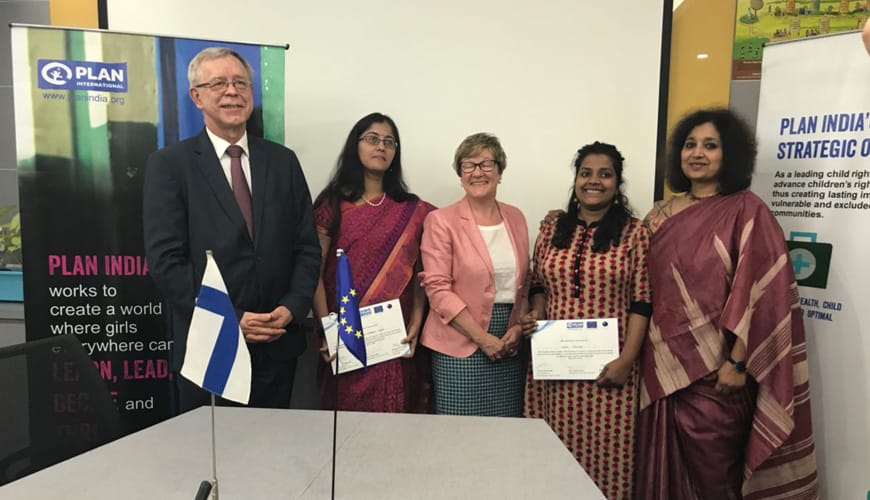17 bold Girl Changemakers from across 10 states stepped into the roles of ambassadors and high commissioners of 17 countries and relayed messages of equality, freedom and power for girls and young women on the International Day of the Girl.
17 bold Girl Changemakers from across 10 states stepped into the roles of ambassadors and high commissioners of 17 countries and relayed messages of equality, freedom and power for girls and young women on the International Day of the Girl. The IDG Diplomatic Missions takeover was a joint collaboration between Plan India and the Delegation of the European Union to India, actively supported by the participating diplomatic missions Australia, Belgium, Canada, Czech Republic, Denmark, EU, Estonia, Finland, Germany, Israel, Netherlands, Poland, Spain, Slovenia, Sweden, Switzerland and the United States.
The Girls Changemakers are representing 10 Indian States: Uttar Pradesh, Bihar, Uttrakhand, Meghalaya, Odisha, Maharashtra, Andhra Pradesh, Telengana, Rajasthan and Jharkhand. They have been selected through a rigorous screening process and will be bringing their unique perspectives to the national level. This is the second year that Plan India and Diplomatic Missions have partnered to give girls the agency to share their stories of courage and leadership while expressing their unequivocal commitment to the larger movement of girls’ rights and leadership.
Through the takeovers, the Girl Changemakers asserted their rights to be heard and seen, showcased their potential as leaders, engaged into meaningful and contributory dialogue on Sustainable Development Goals, and brought attention to issues that limit and hinder girls from accessing their rights as well as opportunities. The Girl Changemakers, unanimously sent out a strong message on the urgent need for girls and young women to have equal rights to education, health, and socio, economic and political participation. They also called upon their peers to raise their voices and claim their rights.
Speaking on the occasion, Mr. Anil Kapoor, Plan India Patron and Goodwill Ambassador, and a National Award winning actor, said, “This is such a proud moment for us. It is wonderful to see 17 of our young girls leading from the front and performing their duties with such diligence and responsibility. I am confident that with more and more girls taking up positions of power, our country’s future will definitely be bright. This is my 12th year of association with Plan India. I am always eager to lend my support to the cause of gender equality. It is inspiring to see young girls progressing with such confidence and rigor.”
Mr. Tomasz Kozlowski, Ambassador of the European Union to India speaking on behalf of all the 17 Diplomatic Missions said, “Girls Takeovers are a call for a social and political change to tear down the barriers that continue to hold girls back. Girls, boys, men and women all have an important role to play in building a society that empowers every member to reach their full potential. The empowerment of women and girls is critical in achieving Sustainable Development Goals, and diplomatic missions in Delhi are proud to participate to this year’s takeover.”
Commenting on this initiative, Ms. Bhagyashri Dengle, Executive Director, Plan India, said, “Considering the crucial role that women play in a country’s economic and social development, there is a need for sustained efforts from all stakeholders to work towards the goal of achieving gender equality. By occupying spaces and places where they are rarely seen or heard, girls seek to highlight the challenges they face and represent their potential and determination to build a more equal world that values girls and promotes their rights.”
Such significant platforms would help us to achieve our goal of reaching out to 10 million girls by 2020 ensuring each one of them have been provided the opportunity to Learn, Lead, Decide and Thrive, added, Ms. Dengle.
On the occasion, Mr. Anil Kapoor also launched the ‘Girls Get Equal Campaign’. The campaign focuses on advocating for the power of girls and their right to be equally seen, heard and valued.
Globally, Plan International has launched the #GirlsTakeover action as a bold new campaign that calls for increased investment in girls’ power, activism and leadership. This campaign is world’s biggest girl-led action for gender equality. Over 1000 #GirlsTakeover were held in more than 70 countries to mark International Day of the Girl. Here, girls raised their voice against the discrimination, harassment, and inequalities that hold them back.
Achieving gender equality is one of the Global Goals (SDG 5) agreed upon by world leaders in 2015, which promises to transform the world by 2030. International Day of the Girl Child was declared an international observance day by the United Nations due to the advocacy efforts of Plan International. On the occasion of the seventh International Day of the Girl, Plan India stands with girls for equality and strives to work together with them to create opportunities for greater engagement of girls and illustrate every girl’s sheer potential and right to equal opportunities.
About Plan India
Plan India is a nationally registered not for profit organisation striving to advance children’s rights and equality for girls, thus creating a lasting impact in the lives of vulnerable and excluded children and their communities. Since 1979, Plan India and its partners have improved the lives of millions of children and young people by enabling them access to protection, quality education and healthcare services, a healthy environment, livelihood opportunities and participation in decisions which affect their lives.
Plan India is a member of the Plan International Federation, an independent development and humanitarian organisation that advances children’s rights and equality for girls. Plan International is active in more than 70 countries.
About the EU Delegation to India and Bhutan
For over 55 years, the EU and India have worked together to reduce poverty, prevent disasters, expand trade, and promote joint research and innovation, amongst others in areas of water, health, energy and societal challenges in general. More information at: http://eeas.europa.eu/delegations/india
The EU is deeply committed to the implementation of all SDGs not only in Europe and India but all over the world, and the EU is working actively with various partners, including the Indian government, to achieve the SDGs globally and locally. SDG 5 on gender equality and women’s empowerment is particularly critical for the EU and for India. Amongst various projects and initiatives, the EU delegation to India has been participating in girls’ takeovers with Plan India since 2016.





